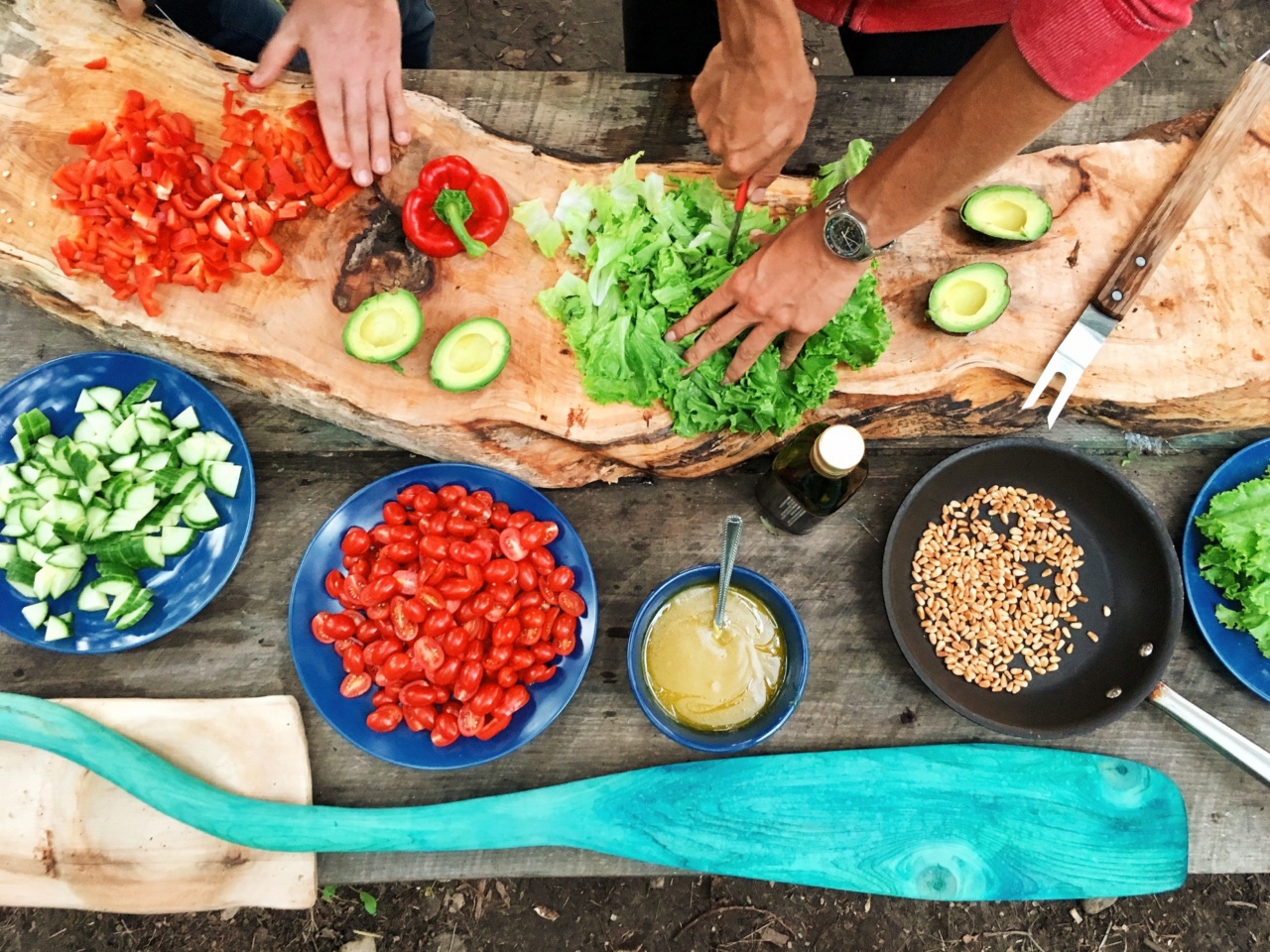Nutrition is a vital part of our healthy lifestyle.
We all love to indulge in our favorite foods sometimes, but do you know that some foods are just not worth it? Nutritionists avoid certain foods due to their poor nutritional value or potential harm to your health. In this article, we’ll discuss the top 30 foods that nutritionists avoid at all costs.
1. Sugary Drinks
Sodas, energy drinks, and other sugary beverages provide empty calories and are packed with sugar. According to a study, consuming sugary beverages can lead to weight gain, type 2 diabetes, and other health problems.
Nutritionists suggest avoiding sugary drinks altogether.
2. Fast Food
Fast food is another food item that nutritionists usually avoid. Fast food is high in calories, unhealthy fat, sodium, and sugar. Moreover, fast food lacks essential nutrients and fiber and can lead to obesity, heart disease, and other health problems.
3. Packaged Snacks
Packaged snacks like chips, crackers, and candy are highly processed and contain little to no nutritional value. These snacks are high in calories, unhealthy fat, added sugars, and sodium, making them a poor food choice.
Nutritionists suggest replacing these snacks with healthier options like fruit, nuts, or homemade snacks.
4. Fried Food
Fried food, whether it’s chicken, French fries, or other snacks, is high in unhealthy fat and calories. Consumption of fried food has been associated with weight gain, heart disease, and insulin resistance in several studies.
Thus, nutritionists recommend avoiding fried foods whenever possible.
5. Processed Meat
Processed meats are meat products that have been preserved by smoking, curing, or adding additives. These meats are high in salt, saturated fat, and have been linked to cancer, heart disease, and other health problems.
Nutritionists prefer lean protein sources like turkey, chicken, and fish.
6. White Bread and Pasta
White bread and pasta are highly processed and contain little fiber and nutrients compared to whole grains. These refined carbs raise blood sugar levels quickly and promote weight gain.
Nutritionists recommend switching to whole-grain options like brown rice, quinoa, and whole-grain bread and pasta.
7. Margarine and Vegetable Oils
Margarine and vegetable oils are high in trans fats, which have been linked to heart disease, inflammation, and other health problems.
Nutritionists recommend opting for healthy fats like olive oil, avocado oil, and nuts instead of margarine and vegetable oils.
8. High-Sugar Breakfast Cereals
Breakfast cereals are often marketed as healthy choices, but many of them contain high amounts of sugar and little nutritional value.
Nutritionists suggest avoiding breakfast cereals with added sugars and choosing whole-grain cereals with low sugar content.
9. Canned Foods
Canned foods like soup, beans, and vegetables contain high amounts of sodium and sometimes preservatives. High sodium intake can lead to high blood pressure, heart disease, and stroke.
Nutritionists advise consuming fresh or frozen fruits and vegetables, low-sodium canned goods, or cooking homemade soups and stews with fresh ingredients.
10. Sugary Treats
Sugary treats like candies, cookies, and pastries can be tempting, but they contain high amounts of added sugars and unhealthy fats. These treats provide little to no nutritional value and can lead to weight gain, diabetes, and other health problems.
11. High-Fat Dairy Products
Dairy products like cheese, butter, and ice cream are high in saturated fat and calories. High intake of saturated fat can lead to heart disease and other health problems.
Nutritionists recommend choosing low-fat or fat-free dairy products or non-dairy alternatives like almond milk or soy milk.
12. Diet Foods and Sugar Substitutes
Diet foods and sugar substitutes may seem like a healthy choice, but they can do more harm than good. Many sugar substitutes are chemically processed and can lead to digestive issues, headaches, and other health problems.
Nutritionists prefer natural sweeteners like honey, maple syrup, and stevia or reducing sugar intake altogether.
13. Artificial Sweeteners
Artificial sweeteners like aspartame, saccharin, and sucralose have been linked to several health problems, including digestive issues, headaches, and even cancer.
Nutritionists suggest reducing sugar intake in general and opting for natural sweeteners when necessary.
14. Processed Cheese
Processed cheese is high in sodium and unhealthy fats. Moreover, it contains additives and preservatives that can be harmful to your health. Nutritionists suggest choosing natural cheese in moderation and reading product labels carefully.
15. High-Calorie Coffee Drinks
High-calorie coffee drinks like frappuccinos and lattes can contain high amounts of sugar and unhealthy fats. These drinks provide little to no nutritional value and can increase your calorie intake and lead to weight gain.
Nutritionists suggest consuming black coffee or adding natural sweeteners.
16. Store-Bought Smoothies
Store-bought smoothies often contain high amounts of added sugars and can be low in fiber and protein. Nutritionists suggest making smoothies at home or choosing smoothies with whole fruit and limited added sugars.
17. High-Sugar Yogurt
Yogurt is marketed as a healthy snack, but many flavored yogurts contain high amounts of added sugars. Consuming high-sugar yogurt regularly can lead to weight gain and other health problems.
Nutritionists suggest opting for plain yogurt and adding fresh fruit and honey for natural sweetness.
18. High-Sodium Condiments
Condiments like soy sauce, barbecue sauce, and ketchup can contain high amounts of added sugars and salt. Consuming high-sodium condiments regularly can lead to high blood pressure and other health issues.
Nutritionists suggest choosing condiments that are low in sodium or making homemade versions with fresh ingredients.
19. Low-Fiber Foods
Low-fiber foods like white rice, bread, and pasta can raise blood sugar levels quickly and promote weight gain. These foods contain little fiber and nutrients compared to their whole-grain counterparts.
Nutritionists suggest choosing whole-grain options that are high in fiber, which can improve digestive health and promote weight loss.
20. Energy Bars and Protein Bars
Energy and protein bars are often marketed as healthy snacks for active individuals, but they can contain high amounts of added sugars and unhealthy fats. These bars provide little to no nutritional value and are not recommended by nutritionists.
21. High-Sugar Sports Drinks
Sports drinks can be high in sugar and calories and contain little nutritional value. Consuming high-sugar sports drinks can lead to weight gain and other health problems. Nutritionists suggest drinking water or low-calorie electrolyte drinks instead.
22. Processed Vegan Meat Alternatives
Processed vegan meat alternatives like vegan sausages, bacon, and burgers can be high in sodium, unhealthy fat, and preservatives. Nutritionists recommend consuming natural protein sources like beans, lentils, and whole-grain products instead.
23. Pre-Packaged Salads
Pre-packaged salads often contain added preservatives, sodium, and unhealthy fats. Moreover, these salads may not be as fresh as they seem. Nutritionists suggest buying fresh ingredients and making salads at home.
24. Fruit Juices
Fruit juices can be high in sugar and calories and contain little to no fiber. Consuming fruit juice regularly can lead to weight gain and other health problems. Nutritionists suggest eating whole fruit instead and limiting fruit juice intake.
25. High-Sugar Protein Powders
Protein powders can be high in added sugars and may contain additives that can be harmful to your health. Nutritionists recommend choosing natural protein sources like nuts, seeds, and legumes or consuming protein powders with low sugar content.
26. Bacon and Ham
Bacon and ham are high in sodium and unhealthy fats and have been associated with an increased risk of cancer and other health problems. Nutritionists suggest consuming lean protein sources like turkey, chicken, fish, or plant-based proteins instead.
27. Canned Soups
Canned soups contain high amounts of sodium and sometimes preservatives that can harm your health. Nutritionists suggest making homemade soups with fresh ingredients or choosing low-sodium canned soups.
28. White Potatoes
White potatoes are high in carbohydrates and have a high glycemic index, promoting weight gain and other health problems. Nutritionists suggest choosing sweet potatoes instead, which are high in fiber and essential nutrients.
29. High-Sugar Granola Bars
Granola bars can be high in sugar and unhealthy fats and provide little to no nutritional value. Nutritionists suggest choosing homemade granola bars with natural ingredients or consuming whole-grain snacks like nuts and fruit.
30. Artificially Flavored Foods
Artificially flavored foods and snacks contain additives that can harm your health and have little to no nutritional value. Nutritionists suggest choosing natural flavors and fresh ingredients whenever possible.






























